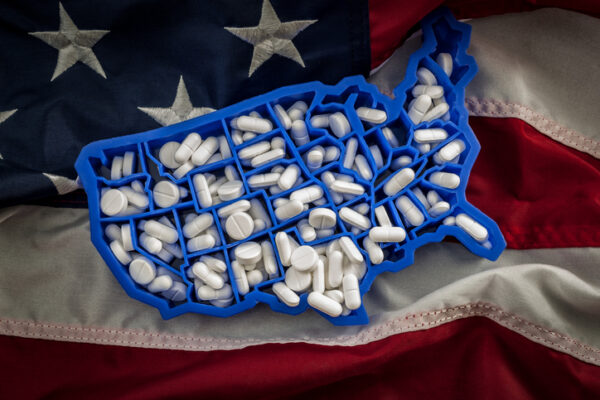
CVS Health and Walgreens both announced today they would pay nearly $5 billion each in a settlement to resolve all opioid-related litigation and claims against the companies.
The final settlement depends on the number of states, counties, and Native American tribes that agree to join, but if the non-monetary terms are finalized, CVS Health will pay $4.9 billion over the next 10 years and Walgreens will pay approximately $4.95 billion in remediation payments to be paid out over 15 years, according to separate news releases from each company.
“We are pleased to resolve these longstanding claims and putting them behind us is in the best interest of all parties, as well as our customers, colleagues and shareholders,” said Thomas Moriarty, Chief Policy Officer and General Counsel, CVS Health in a news release. “We are committed to working with states, municipalities and tribes, and will continue our own important initiatives to help reduce the illegitimate use of prescription opioids.”
Walgreens also released a statement. “We believe this is in the best interest of the company and our stakeholders at this time, and allows our pharmacists, dedicated healthcare professionals who live and work in the communities they serve, to continue playing a critical role in providing education and resources to help combat opioid misuse and abuse,” the company said in a news release.
In the news release from Walgreens, the company said it expects the financial settlement would resolve all opioid claims against the company.
Reuters reported that Walmart would also pay to settle opioid-litigation claims, but when asked by MedCity News to confirm this, the company said they had no comment.
There are more than 3,000 cases that are part of the multidistrict litigation concerning the opioid epidemic. So far, most drugmakers and distributors have reached settlements with counties that brought cases against them. In a unique ruling in August in which a judge sided against large pharmacies, an Ohio district court judge ordered CVS Health, Walgreens and Walmart to pay $650 million to two Ohio counties for their part in the opioid epidemic.
CVS Health conducted a call disclosing the company’s third-quarter earnings on Wednesday following the news release about the settlement. The company reported earnings of $81.2 billion for the third quarter, up 10% compared to the third quarter of 2021. The company reported higher losses than last year, in part due to the $5.2 billion in opioid-related litigation, according to a news release.
When asked about the likelihood of states signing onto the settlement agreement, CVS Health CEO Karen Lynch said she has a “high degree of confidence” because state attorneys general were at the table in the past few months during mediation conversations.
CVS Health and Walgreens did not respond to a request for comment.
Photo: Moussa81, Getty Images










